Gary Con II Report
 On Saturday I drove to Lake Geneva, Wisconsin, for the second annual Gary Con, a friendly gathering in honor of Gary Gygax, the co-creator of Dungeons and Dragons and the father of role-playing games.
On Saturday I drove to Lake Geneva, Wisconsin, for the second annual Gary Con, a friendly gathering in honor of Gary Gygax, the co-creator of Dungeons and Dragons and the father of role-playing games.
You can read the Tribute to Gary Gygax, written by the staff at Black Gate magazine and Paizo publisher Erik Mona after Gary’s death in 2008, if you’re not familiar with his work.
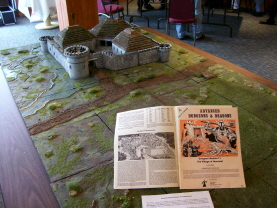
Lake Geneva is the birthplace of D&D and, consequently, the entire RPG industry. It was here that TSR, the company Gary co-founded in 1973, was headquartered for over two decades, and where many of the creative minds who helped it grow from a fledgling hobby company to the most influential game publisher of the last 30 years still live today – people like Tim Kask, founding editor of Dragon magazine, Gamma World author James Ward, RPGA founder Frank Mentzer, Snit’s Revenge creator Tom Wham, and many others.
The stated goal of the con is to “harken back to the early days of gaming conventions where role-playing was in its infancy and the players shared a strong sense of camaraderie,” and in that respect Gary Con was an unqualified success.
Players gathered around dozens of tables enjoying highlights from TSR’s early catalog, including first edition AD&D, Metamorphosis Alpha, Dawn Patrol, Boot Hill, Dungeon, Chainmail, and more modern games that strive to capture that sense of old-school adventure, such as Hackmaster, Castles and Crusades, and even Gygax’s fondly remembered post-TSR effort, Dangerous Journeys.
Best of all, I saw many renowned game designers and early TSR employees mingling with the crowd, or acting as dungeon masters for classic Gygax modules such as Steading of the Hill Giant Chief, The Temple of Hommlet, and Castle Greyhawk.
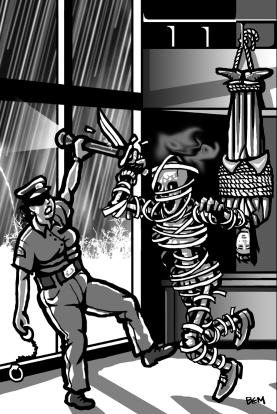 The sarcophagus was empty, the mummy was on the loose, and Corporate expected her to deal with it. Seemed like a lot to ask, especially for minimum wage.
The sarcophagus was empty, the mummy was on the loose, and Corporate expected her to deal with it. Seemed like a lot to ask, especially for minimum wage.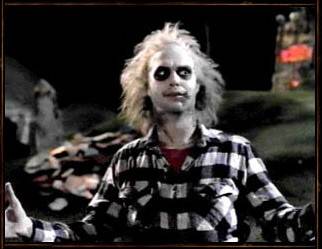 I freely cop to having the sort of geeky sense of humor that is immediately triggered by someone coming up with the perfect movie quote for any given situation. For that matter, the level of hilarity is proportionately magnified by the obscurity of the quote, how quickly I was able to identify it, and any subtle, “insider” references the quote might invoke.
I freely cop to having the sort of geeky sense of humor that is immediately triggered by someone coming up with the perfect movie quote for any given situation. For that matter, the level of hilarity is proportionately magnified by the obscurity of the quote, how quickly I was able to identify it, and any subtle, “insider” references the quote might invoke.
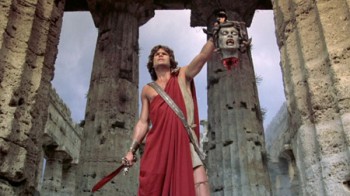 On April 2nd, “Titans Will Clash!” Which is perhaps the worst tag-line I’ve seen since “The Story That Won’t Go Away” for JFK. I wonder why the tag-line on director Louis Lettier’s previous film wasn’t “This Summer, The Hulk Is Incredible!”
On April 2nd, “Titans Will Clash!” Which is perhaps the worst tag-line I’ve seen since “The Story That Won’t Go Away” for JFK. I wonder why the tag-line on director Louis Lettier’s previous film wasn’t “This Summer, The Hulk Is Incredible!”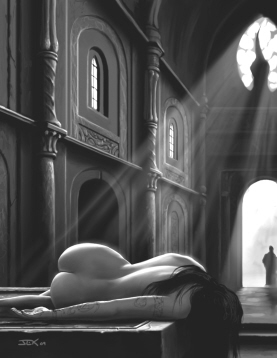 It was Lena’s fifth suicide. Such was the way of the Killaster Witches. But as ambitious as she was, Lena’s schemes for revenge might not be quite treacherous enough…
It was Lena’s fifth suicide. Such was the way of the Killaster Witches. But as ambitious as she was, Lena’s schemes for revenge might not be quite treacherous enough…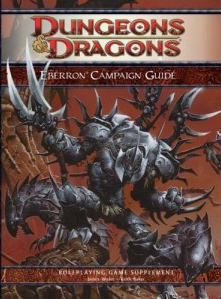 Last month we
Last month we 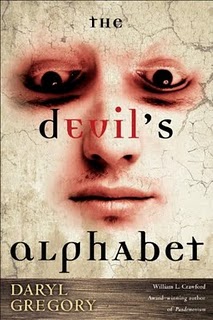 Paxton Martin has come home to Switchcreek, Tennessee, to attend the funeral of a childhood friend. He drove in from Chicago, pulling an all-nighter, because he could not decide until the last minute if he wanted to go back. He’d been living in Chicago since running away from Switchcreek, 13 years ago, after everything changed.
Paxton Martin has come home to Switchcreek, Tennessee, to attend the funeral of a childhood friend. He drove in from Chicago, pulling an all-nighter, because he could not decide until the last minute if he wanted to go back. He’d been living in Chicago since running away from Switchcreek, 13 years ago, after everything changed. The latest issue of webzine
The latest issue of webzine